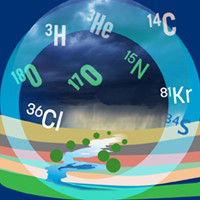Speaker
Description
Across southern Africa, an understanding of the inter-relationship between climate change and available water resources, and the implications of this relationship on socio-economic factors, is critical to the long-term sustainability of the region’s economy. The most profound aspect of this inter-relationship is the predicted change in climate linked to significant changes (both positive and negative) in regional, national and transboundary water budgets. This outlook has significant socio-economic implications for the region including the ability to support urban centres, to reduce poverty, to protect food and energy supplies and to develop skills and capacity within the population. In recent years, these issues came to head as severe drought affected the city of Cape Town, an urban centre at the bottom of Africa, with a population of ~ 3.8 million people. Below average rainfall between 2014 and 2017 and water management failures, resulted in the City of Cape Town experiencing extreme water stress over the 2017-2018 summer. The bulk of Cape Town’s municipal water supply is derived from six surface water storage facilities with a combined total capacity of 828 991 Ml. By March of 2018, the total storage in these facilities reached its lowest recorded level, at less than 20 %, with the largest of the reservoirs, the Theewaterskloof reservoir, at only 13.5 % of its 480 188 Ml capacity. Given that the bottom 10% of dams is regarded as “unusable”, this left only 3.5% usable water in the largest dam supplying the City of Cape Town. All residents were required to reduce water consumption to 50 L per person per day and various pronouncements of an imminent "Day Zero" were made, the day the city would turn off the municipal water supply in order to maintain critical infrastructure.
In the end “Day Zero” in Cape Town did not eventuate. The collective effort of the Cape Town population to save water allowed the city’s water storages to last until the arrival of the winter rains. However, the possibility of the municipal water network being shutdown, focused people’s minds on how we use and value water and led to a real change in water use patterns. Cape Town, like many large urban centres worldwide, based its water security on surface water storage systems. This practice leaves these urban centres at the mercy of fluctuating climates and increasingly erratic rainfall patterns. In response, many cities around the world are now introducing a diverse mix of water sources to supplement of municipal water supply networks and to protect supply security. These water sources include desalination, grey-water recycling, and direct rainwater harvesting but for many cities, including Cape Town, groundwater supplementation remains a strong focus.

